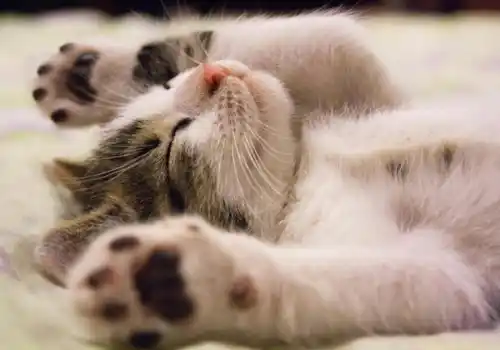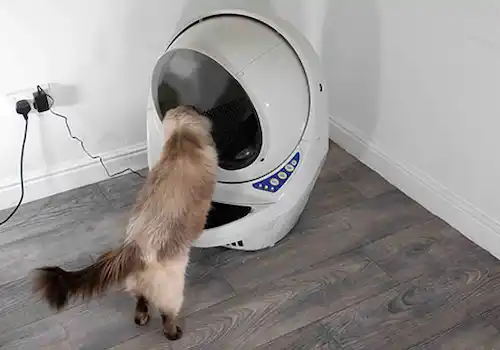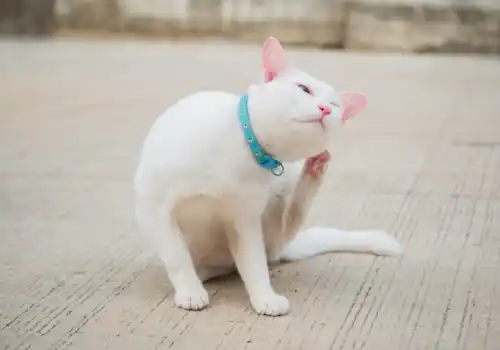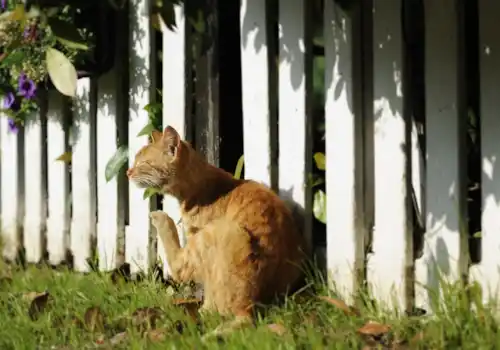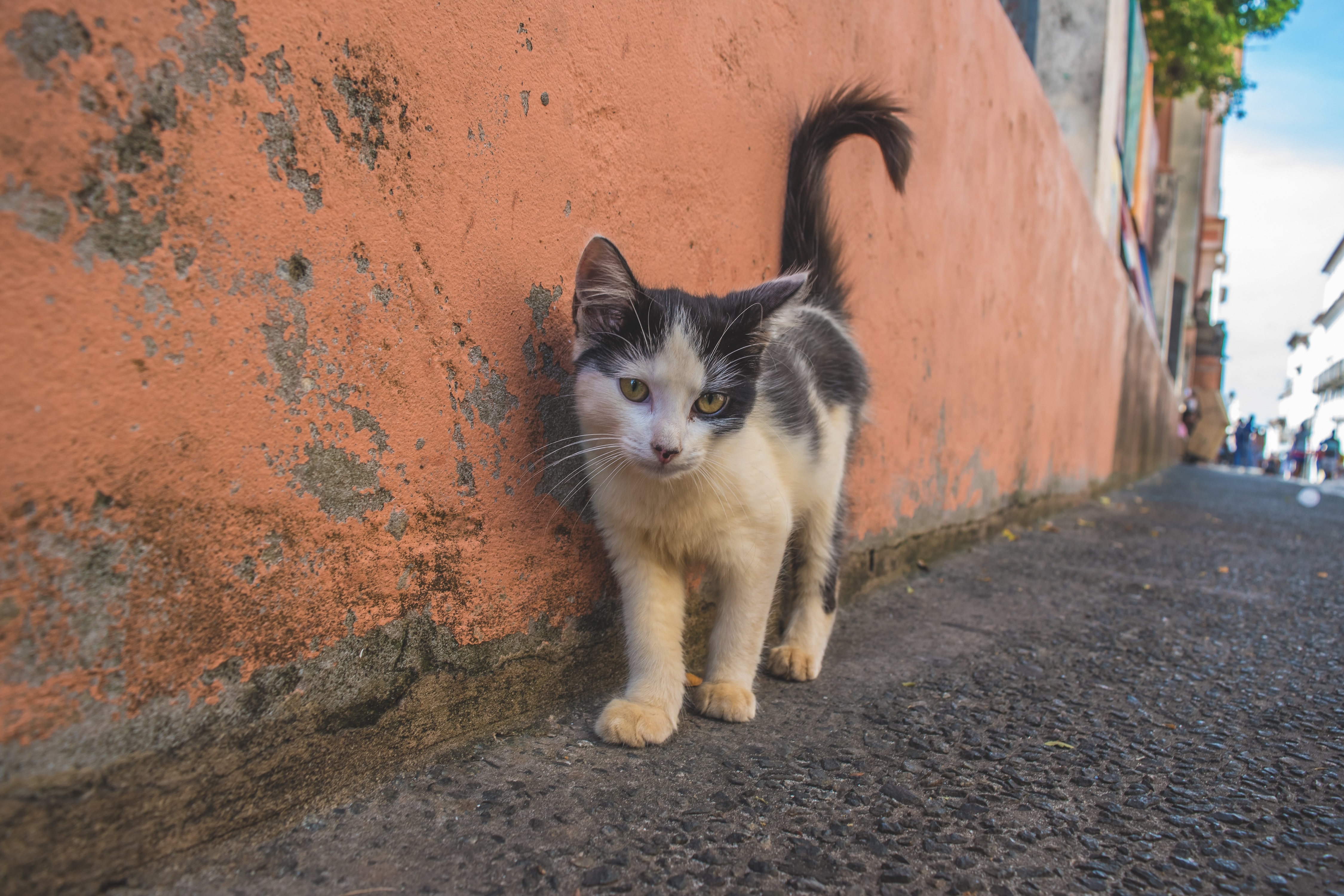As cat lovers, we don’t just care about our own cats. Here’s what to do if you’re concerned about a cat you’ve encountered.
Like most cat-lovers, I am ‘friends’ with a lot of the neighbourhood cats. Olly comes over for a stroke whenever he sees me, Big Ralph is always up for a tummy-tickle, and for years, a cat I called Roger the Lodger used to come through my cat flap for a snooze whenever he felt like it. I soon found out where they lived and who their owners were — but what if I hadn’t?
What would I do — what would anyone do — if a local cat looked thin and scrawny, injured or ill-cared for, or seemed to be continually pregnant? It isn’t always easy to tell whether a cat is a stray or has a perfectly good home to go to, or even worse, whether the people who are supposed to be caring for it are doing a good job.
No-one wants to be a busy-body but what can you do if you have concerns about a cat that isn’t your own? When is it right to step in and interfere?
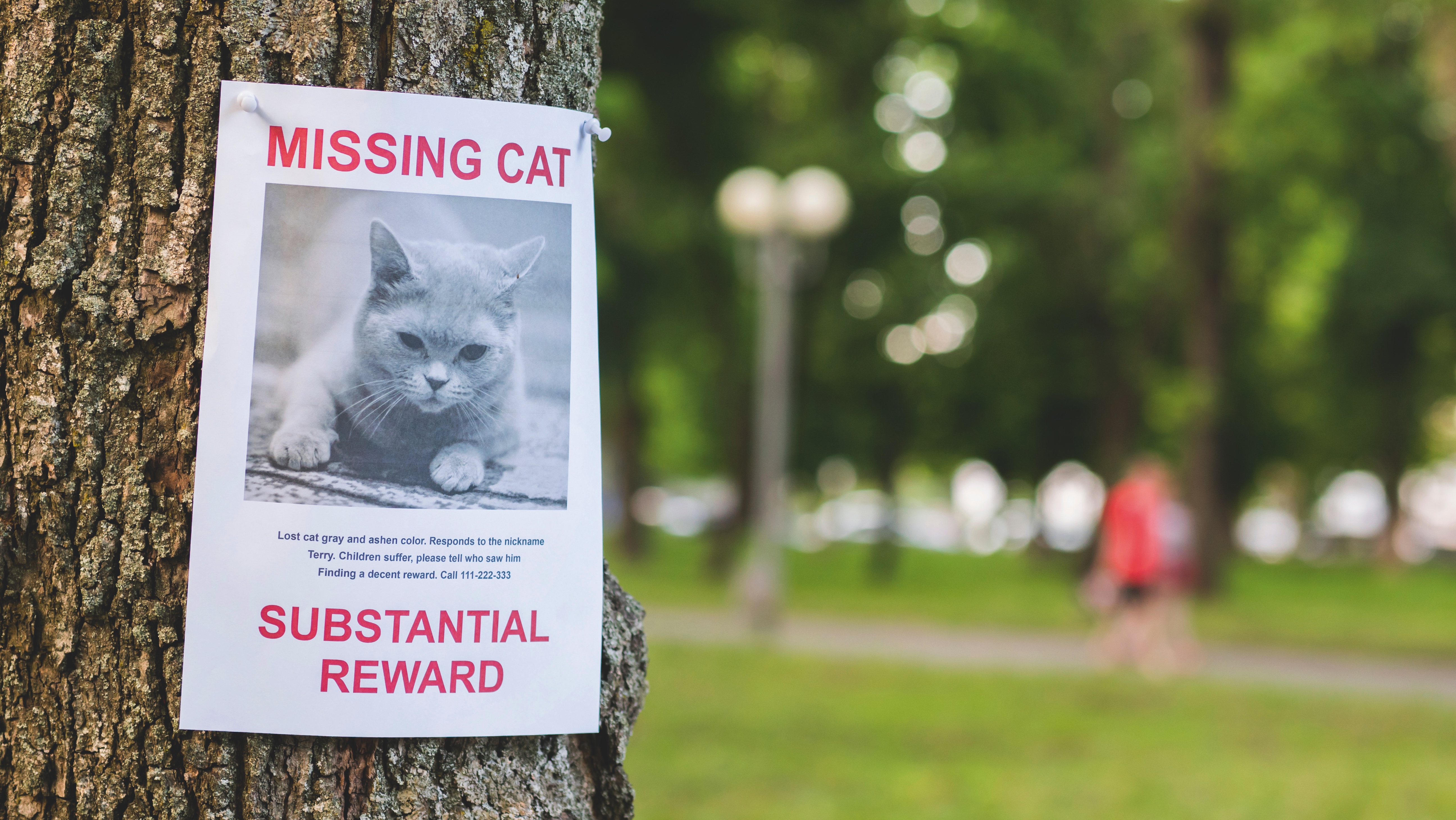
Reading the signs
Cat charities can all offer advice on what is a tricky subject. Their object is the welfare of all cats, whatever their circumstances, strays, feral cats, owned cats, and cruelty cases. The Cats Protection website (www.cats.org.uk) has plenty of common sense tips and hints for this situation.
The first thing they say is “don’t assume.” Remember that most cats wander round their local area and most happily find their way home again. If you see an unfamiliar cat, does it look well-fed and well-groomed? Is it wearing a collar and tag? Always look for ‘lost cat’ posters and make a note of the phone numbers and if you are a member of a local online neighbourhood group like Nextdoor, you can check there too. Ask your neighbours, or regulars like the postman if they know where the cat belongs.
Stray or feral
Cats Protection also offer useful tips on how to tell a stray from a feral cat. They say that strays — who once had a home with a human family — are used to people and given a little encouragement, can be friendly. They usually turn up near, or in, houses or gardens, which feral cats avoid.
Feral cats are half-wild, have had little contact with humans since birth, and generally live in colonies, away from people. They are very hard to approach except by expert cat-catchers from rescue charities. Many rescues run TNR (trap, neuter, return) programmes for feral colonies to stop them producing more and more unwanted kittens. If you do, by chance, come across a feral colony, the best thing to do is to contact your neighbourhood cat rescue and see what they advise.
Injured cats
Cats Protection say that if you find a cat that seems ill or injured, wrap it in a coat or blanket and take it to the nearest vet or call the RSPCA at once. You can call the Cats Protection information line on 03000 12 12 12 and many of their local branches have local lost and found registers aimed at reuniting lost cats with their families.
Cruelty to cats
Cruelty to cats, whether deliberate or unintentional, is quite another matter. Did you know that the RSPCA is the only organisation that can legally deal with this? Not just cruelty to cats, of course, but to any animal. They have a dedicated Cruelty Line on 0300 1234 999. Cruelty could cover hitting, kicking, or any form of violence, or depriving the cat of food and warm place to stay, in fact any kind of ill-treatment.
“We rely on the public to be our eyes and ears and to let us know if they are concerned about the welfare of any animal,” the RSPCA said. “If a member of the public witnesses animal cruelty, we would urge them to call our Cruelty Line. We will ask them for the details and any evidence they may have on when or where the incident happened.”
Authorities, whether the police or rescue charities, never advise witnesses to ‘have a go’ themselves, especially as that may involve putting themselves in danger. It’s better to concentrate on getting a clear description of the person or people involved — taking photos if you can — while always being conscious of your own safety.
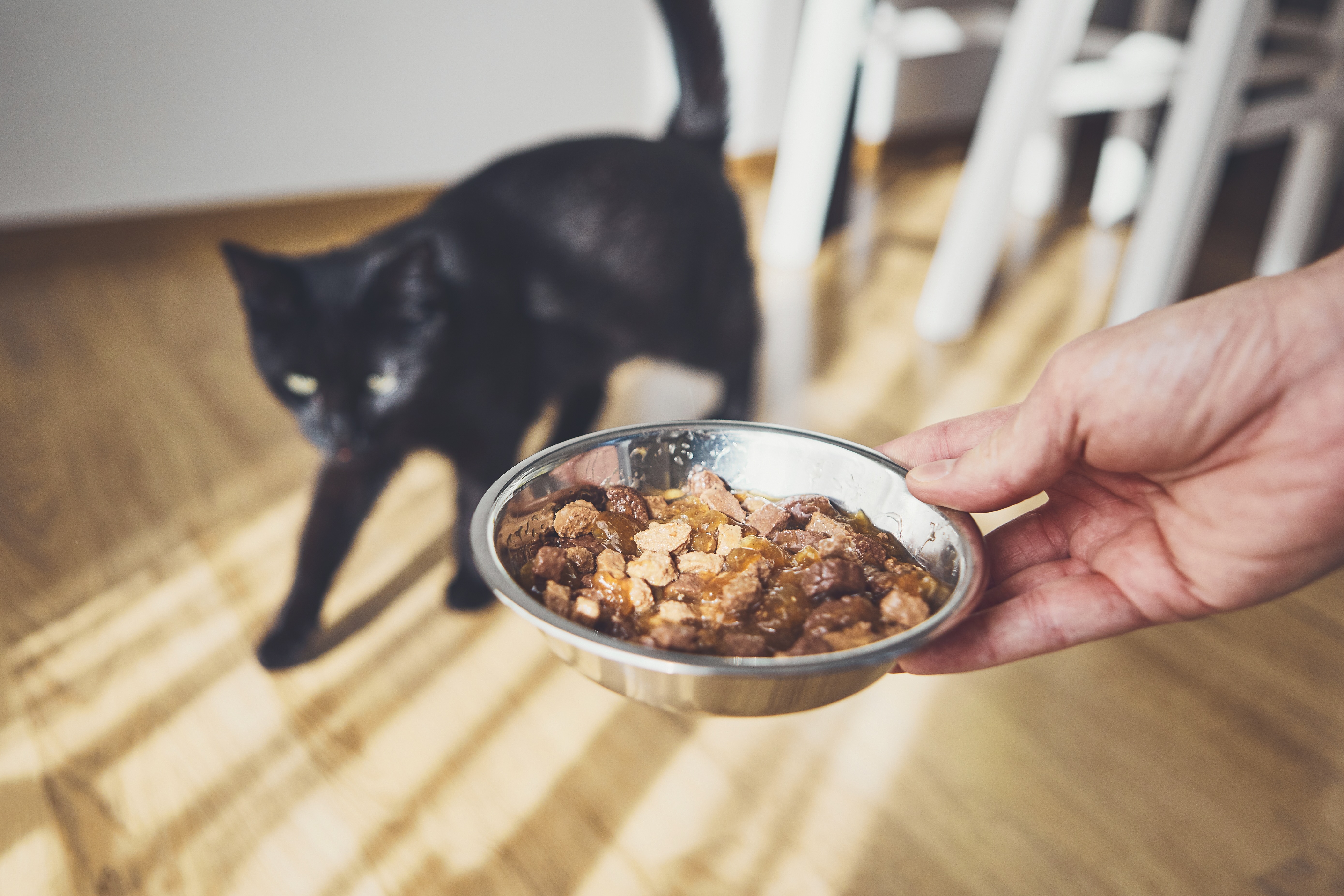
Needing better care
If you are aware that a cat isn’t being properly looked after by a neighbour, friend, or relative, not because they are being deliberately unkind but because they really don’t know what to do for the best, the RSPCA suggests having a chat with them in the first instance.
“It’s not easy for some people to reach out for help, or they may not know where to turn,” they say. “Offering to lend a hand might make a huge difference. You could encourage the person to be in touch with charities like ourselves. We can offer advice and information about cat care, as well as subsidised veterinary treatment for those eligible. We can also signpost people in need to food banks which can sometimes help them with pet food if they are in need of financial support.”
The charity stresses that there is information on their website (rspca.org.uk) for anyone who has concerns for the welfare of any cat, for any reason.
“Most of our calls can be dealt with through advice, support, and education,” they say. “But the public can rest assured that we will always look into, and if necessary, investigate, any animal welfare concerns that are reported to us.”
Kayleigh Kilcommons is head of cattery at Mayhew in West London. She says that tact and sensitivity are needed if you are worried about someone else’s cat, and that people may be more willing to take advice if they know it’s coming from animal welfare experts.
“Obviously, if you feel uncomfortable about the way someone is treating their cat, you need to handle the situation carefully,” she says. “I would suggest doing some research on the issue before broaching the subject. You can find good advice online by going to animal charities’ websites. Some run telephone advice lines too. Of course, if you suspect abuse or neglect you should call the RSPCA as soon as you can.”
Cat lovers told us about worries they had had about cats who are not their own and we asked Kayleigh what she would advise…
Anna: “My friend has just adopted a kitten. Of course, her children love it to bits, and that’s the problem really. They want to play with it all the time, even when it’s sleeping, and although they don’t mean to hurt it, they are a bit rough sometimes…”
Kayleigh: “Kittens can be fragile and do require gentle handling to avoid injury. I would suggest that Mum or Dad explains to the children that any play or interaction should be on the kitten’s terms, especially if it is a new addition to the family. This will allow the kitten to build up confidence in its new environment. It’s better if, instead of approaching the kitten, they call the kitten to them. This teaches the children that sometimes the kitten doesn’t want to play with them, and that should be respected. Poor handling as a kitten is likely to be reflected in the cat’s temperament as an adult, so it’s in the family’s best interest to set some ground rules. Also, sleep is very important for a kitten’s development. Mum and Dad need to explain to the children that the kitten needs its sleep to stay healthy and happy.”
Julia: “My neighbour’s cat is less than a year old and has already had a litter of four kittens. She says she wants to have her spayed but it’s too expensive.”
Kayleigh: “Neutering a cat is an essential part of pet ownership with important behavioural and health benefits. It also reduces the numbers of abandoned pets! Many charities these days offer free or low-cost neutering, including Mayhew. www.themayhew.org I would suggest she contacts local charities or animal shelters who will know where she can go locally for this veterinary procedure.”
Stephen: “My Nan loves her cat but she is becoming very forgetful and I’m not sure she always remembers to feed him or take him to vet appointments!”
Kayleigh: “If at all possible, I would suggest offering your Nan a helping hand with this. You could buy a food timer, then if you, a friendly neighbour, or relative could be sure it was filled once daily, the cat would be regularly fed. For vet appointments, perhaps someone else could take responsibility for organising them and taking the cat along? We all lead busy lives these days so it’s important to find a local vet’s whose opening hours suit you. Friends and neighbours are often happy to lend a hand if they’re asked. They may not even have realised there was a problem.”


